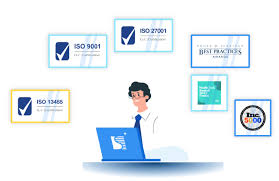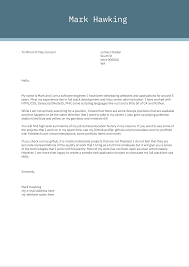Empowering Businesses for a Sustainable Future
The Role of Businesses in Today’s Society
In today’s interconnected world, businesses play a crucial role in shaping our society and economy. From small local enterprises to multinational corporations, businesses impact various aspects of our daily lives.
Creating Job Opportunities
One of the primary functions of businesses is to create job opportunities for individuals. By employing people from diverse backgrounds and skill sets, businesses contribute to reducing unemployment rates and improving the overall economic well-being of communities.
Driving Innovation and Progress
Businesses are at the forefront of driving innovation and progress. Through research and development efforts, companies introduce new products, services, and technologies that enhance our quality of life and address societal challenges.
Contributing to Economic Growth
Businesses are key drivers of economic growth. By investing in infrastructure, expanding operations, and engaging in trade activities, businesses stimulate economic activity that leads to increased prosperity for individuals and nations.
Supporting Local Communities
Many businesses actively support local communities through philanthropic initiatives, sponsorships, and volunteer programs. By giving back to society, businesses demonstrate their commitment to social responsibility and help address pressing social issues.
Adapting to Changing Needs
In a rapidly evolving world, businesses must adapt to changing consumer preferences, technological advancements, and regulatory requirements. By remaining agile and responsive, businesses can stay competitive and relevant in an ever-changing marketplace.
Fostering Collaboration and Partnerships
Businesses often collaborate with other organizations, governments, academic institutions, and non-profit entities to achieve common goals. These partnerships foster knowledge sharing, resource pooling, and collective action towards solving complex societal challenges.
In conclusion, businesses are integral components of today’s society that drive economic growth, innovation, job creation, community development,
sustainability efforts. By recognizing the multifaceted roles that businesses play,
we can appreciate their contributions
towards building a more prosperous
future for all.
Top 5 FAQs About Starting and Running a Successful Business
- How do I start a business?
- What are the different types of business structures?
- How can businesses improve their online presence?
- What are the key factors for business success?
- How do businesses handle financial management?
How do I start a business?
Starting a business is an exciting endeavor that requires careful planning and strategic decision-making. To begin, aspiring entrepreneurs should conduct thorough market research to identify a viable business idea and target audience. Developing a solid business plan outlining goals, objectives, financial projections, and marketing strategies is essential for success. Additionally, obtaining necessary licenses and permits, securing funding or investment, and establishing a strong support network of mentors and advisors can help navigate the complexities of starting a business. Embracing innovation, perseverance, and a willingness to learn from both successes and failures are key qualities that can propel entrepreneurs on the path to building a successful business.
What are the different types of business structures?
There are several types of business structures commonly used by organizations to define their legal and operational frameworks. The main types include sole proprietorship, partnership, limited liability company (LLC), corporation, and cooperative. Each structure has its own advantages and disadvantages in terms of liability protection, taxation, management flexibility, and ownership rights. Business owners must carefully consider the nature of their operations, long-term goals, and desired level of control when choosing the most suitable structure for their venture. Understanding the differences between these business structures is essential for making informed decisions that align with the organization’s objectives and regulatory requirements.
How can businesses improve their online presence?
To enhance their online presence, businesses can implement various strategies. Firstly, optimizing their website for search engines through relevant keywords and quality content can improve visibility. Utilizing social media platforms to engage with customers, share updates, and promote products or services can also boost online presence. Additionally, investing in online advertising campaigns such as pay-per-click (PPC) or social media ads can increase brand awareness. Regularly updating and maintaining an active blog or providing valuable content through email marketing can help businesses stay connected with their audience and drive traffic to their website. Lastly, monitoring analytics data to track performance and make informed decisions for continuous improvement is essential in strengthening their online presence.
What are the key factors for business success?
Achieving success in business requires a combination of key factors that contribute to sustainable growth and competitiveness. Some crucial elements for business success include having a clear vision and mission statement, effective leadership, strategic planning, understanding market dynamics, delivering quality products or services, fostering innovation and adaptability, building strong customer relationships, maintaining financial stability, investing in employee development and engagement, and staying abreast of industry trends. By carefully considering and integrating these key factors into their operations, businesses can position themselves for long-term success in today’s dynamic marketplace.
How do businesses handle financial management?
Businesses handle financial management through a series of strategic practices aimed at ensuring financial stability and growth. This includes budgeting, forecasting, monitoring cash flow, managing expenses, and optimizing revenue streams. Additionally, businesses often rely on financial statements and reports to assess their financial health and make informed decisions. By implementing sound financial management practices, businesses can effectively allocate resources, minimize risks, and achieve long-term sustainability in a competitive market environment.










